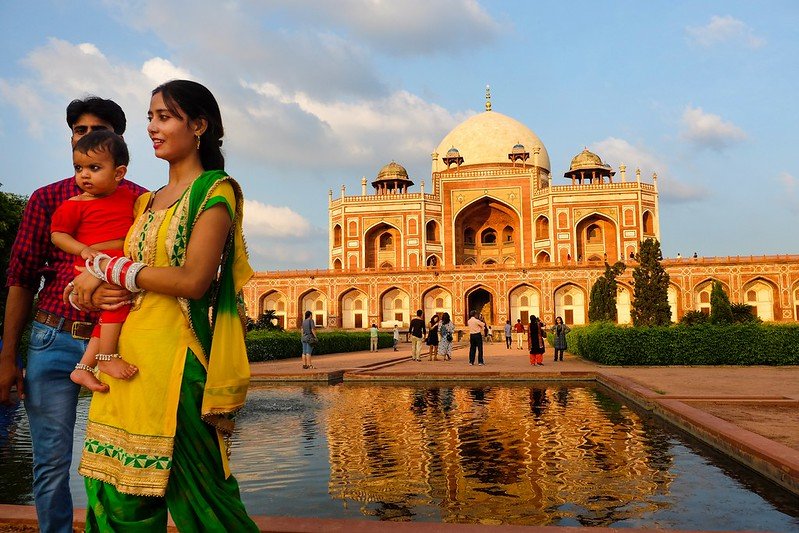A recent study has revealed that most Indians prefer to stay in a joint family system with parents instead of moving after the marriage.
An Indian writer said that the Indian family is like a clan that provides its individuals’ protection and identity while keeping them from isolation.
A fresh study has corroborated this claim.
Many experts believe that social development, increased urbanization, education, and cultural changes will gradually dissolve the family system.
However, a recent study conducted by Cornell University‘s Demographer Etienne Breton, Indian family system is far from succumbing to this situation.
Breton studied the relation between modernism and the changes taking place in families.
He says, “There has been no increase in such families in India that only comprise parents and children.” These family units are called nuclear families.
The evidence has also not found any significant change in the average household size since the beginning of the twentieth century.
Most Indians believe in the tradition of marriage, and the divorce ratio is low. There are very few households with people living as single status or the ones without children. Precisely, the situation is most conducive to joint family systems.
According to Dr. Breton, “India has forcefully challenged the ever-growing concept of the nuclear family system.”
Her recent research has analyzed the families where parents are living with their married children.
Indian wives are not found to separate their husbands from their families, though they can affect their husbands’ decision-making.
Usually, a nuclear household emerges in India when the son gets a house of his own before the father’s death.
More:
- Meet Salwa Hussein, the only human living normally with a heart!
- How come Gautam Buddha became Indian: Nepal asks India
Aging is another great reason for young people’s living with their parents. Compared to the 1980s, a 30-year-old son is more likely to live with the parents in the 2020s.
Slow urbanization is yet another reason as only 35 percent of India’s population lives in cities compared to China, where around 60 percent are city-dwellers.
Family Businesses Also a Binding Factor
Another researcher from King’s College London believes an interesting reason for this continuity of Indian culture status quo.
She believes that the connectivity within the family helps to strengthen the family business as a result of which women do not have to seek jobs, and which leads to the strengthening of the family relations.
One obvious reason is that moving could be expensive while living jointly makes it manageable as expenses are divided.
However, Alice Evans says the situation is not limited to Indian families only. “During the early 1990s, almost all families in China, Japan, Korea, and Taiwan too lived like this. It was very rare to see any nuclear family.
Dr. Evans further said that the family structure in the East Asian countries was as strong as we find it in India today. However, the joint family system saw a decline during the twentieth century, including employment out of family business, urbanization, and female employment.
“Though people still help their parents financially in those countries, they do it while living separately.”
For the last century, a great proportion of women in Japan, Korea, Taiwan, and China have been going to work. Both men and women have sought economic liberty through joint efforts. As a result, women give birth to fewer children that help them continue their jobs.
According to Dr. Evans, “South Asia is very different where the women’s pursuit of the job is linked with poverty and deprivation
























